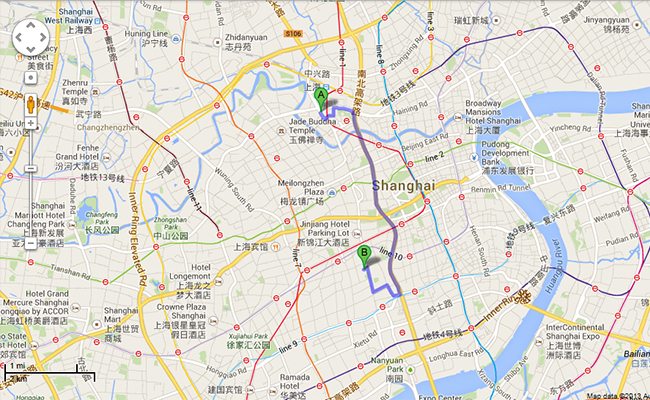How opening new hotels in China could damage the entire industry
In late May, InterContinental Hotels Group (IHG) celebrated the opening of the IHG Shanghai Ruijin hotel. However, IHG’s spirits were probably dampened a bit by the bad news it received a week earlier. It was ordered to pay RMB 150 million to real estate firm Shanghai Yaoda, the landlord of another Shanghai hotel that IHG manages, the IHG Shanghai Puxi.
What precipitated this? Under a 20-year agreement, Yaoda pays IHG a management fee specified as a percentage of revenue for managing the Puxi hotel which opened in 2009. Yaoda accused IHG of infringing on their contract by opening the Ruijin hotel. Apparently the Shanghai branch of the China International Economic and Trade Arbitration Commission, the arbitrators of the dispute, agreed with Yaoda and ordered IHG to pay. The story may continue to develop as it is reported that IHG does not recognize the arbitration results and the two parties are now fighting over the use of the InterContinental brand name.
Although there are not enough details of the dispute available (in English) to evaluate the arbitrator’s decision the dispute hinged on an important concept in economics–the idea of an “externality”. An externality occurs when one person does something that affects others but the person taking the action doesn’t consider the effect on everyone else. That is, they do not “internalize” the externality. The external effect can be negative: a smoker who does not care about how their second-hand smoke affects those around them. Or it can be positive: someone picking up a piece of trash from the street beautifies the street not just for them but for everyone else in the neighborhood.To understand the externality in this case it is useful to think through the effects of the Ruijin hotel opening. Let’s suppose that IHG receives 3% of revenues for managing its hotels as this is a typical fee structure for international hotel chains. When Ruijin opens, it steals business from nearby hotels especially similar ones. This will be reflected in lower occupancy rates, lower prices, or both for these nearby hotels. It is also useful to know two facts about the two Shanghai hotels that IHG manages. First, they are quite close to each other–Google Maps places them less than five kilometers apart. Second, although in close proximity the two hotels are owned by different companies–the Ruijin hotel is owned by Shanghai Donghu Group Corporation.
The first fact means that opening the Ruijin hotel will lower the revenues at IHG’s Puxi hotel since it is similar and nearby. This affects IHG negatively–it gets 3% of Puxi’s revenues as a management fee. IHG is presumably aware of this and decided that it was still worthwhile to open a nearby hotel because it would earn a greater profit from the two hotels combined. If IHG thought this through correctly (and I have no reason to think that they did not) then they internalized the negative effect that opening the Ruijin hotel would have on their Puxi location.
Yaoda is also negatively affected by this–their 97% portion of the revenues suffers. Unlike the effect on its own business, however, IHG ignores this because it does not affect their bottom line. This creates a negative externality borne by Yaoda which IHG does not internalize. Moreover, given the second fact, Yaoda does not benefit from revenues at the Ruijin hotel.
This does not necessarily mean what IHG did is illegal–it depends on whether its contract with Yaoda allows IHG to open a nearby hotel. Regardless, the incentive for IHG to ignore the effect the negative externality imposes on Yaoda is clear. In fact, the incentive to engage in such opportunistic behavior is common enough that many agreements between business partners explicitly consider this. Contracts between manufacturers and retailers often specify an exclusive territory for the retailer. This provides the retailer the sole right to sell a manufacturer’s product within a specified geographical area. These provisions protect the retailer from the manufacturer opening further outlets in the area for its benefit but to the detriment of the retailer. As the old proverb says, “Good fences make good neighbors”.




















